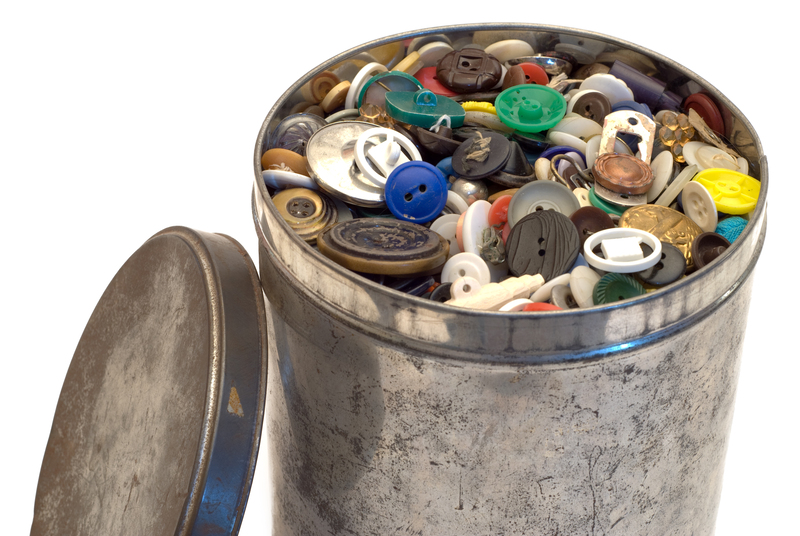Plant Pot Disposal Made Easy for Enthusiasts
For plant lovers and gardeners, managing the growing collection of old, broken, or unused plant pots can become a challenge. Whether you're cultivating a thriving urban jungle or maintaining a humble backyard vegetable plot, you'll eventually face the question: What do I do with all these empty pots?
Plant pot disposal doesn't have to be inconvenient or environmentally unfriendly. In this comprehensive guide, we explore sustainable, creative, and simple solutions for plant pot recycling, repurposing, and responsible disposal. Discover how you can make your gardening hobby more eco-friendly and organized while keeping your space clutter-free.

Why Proper Plant Pot Disposal Matters
The importance of disposing of plant pots responsibly is often overlooked. With millions of gardeners around the globe, the cumulative impact of improper disposal is significant. Here's why it deserves your attention:
- Plastic waste reduction: Most plant pots are plastic, which takes centuries to decompose.
- Environmental health: Landfilled pots contribute to pollution, affecting wildlife and soil quality.
- Space efficiency: Reclaiming storage and garden areas helps enthusiasts create better-organized spaces for their favorite plants.
- Cost savings: Repurposing pots can save money otherwise spent on new ones.
By making plant pot disposal easy and responsible, gardeners contribute to a greener future while enhancing their gardening experience.
Types of Plant Pots and Their Disposal Challenges
Understanding the types of plant pots you're dealing with is the first step towards proper disposal. Here's a rundown of common materials:
- Plastic plant pots: Lightweight, durable, and commonly used, but not always curbside recyclable.
- Terracotta and clay pots: Natural materials that can be reused or broken down, but heavy and sometimes cracked.
- Ceramic pots: Attractive and durable, but often glazed (not compostable) and heavy.
- Biodegradable pots: Made of coir, peat, paper, or other organics, these are designed to break down naturally.
- Metal pots: Less common, can rust over time, but are recyclable if free of paint or coatings.
Easy Plant Pot Disposal Options for Garden Enthusiasts
Ready to clear out your pile of pots with the least environmental impact? Here are practical plant pot disposal options for every type of gardener:
1. Recycle Your Plastic Plant Pots
- Check local recycling rules: Most municipalities don't accept plastic pots in curbside recycling bins due to the type of plastic or contamination with soil and plant residues.
- Garden center pot recycling programs: Many major garden centers and nurseries offer dedicated collection bins for used pots, trays, and labels. Call ahead to confirm which items are accepted.
- Specialized recycling centers: Look for local waste facilities that accept garden plastics, especially #2 (HDPE) and #5 (PP), which are common in plant pots.
Remember to rinse and clean the pots of soil and plant debris before recycling, as contamination can lead to rejection.
2. Repurpose Old Plant Pots
- Propagation projects: Old pots are perfect for starting seeds or cuttings.
- Organizational solutions: Use smaller pots for storing garden tools, seed packets, craft supplies, or office items.
- Creative crafts: Turn broken terracotta into mosaic tiles, DIY plant labels, or drainage rocks for larger pots.
- Garden decor: Paint and stack plastic pots to create whimsical garden totems or fairy house bases.
Repurposing is a fun and effective way to keep pots out of landfills while sparking creativity in your gardening journey.
3. Donate Usable Pots
- Community gardens: These organizations often welcome donations of clean, reusable pots.
- Schools and youth groups: Many educational institutions use pots for science and gardening projects.
- Local plant swaps or garden clubs: Arrange "pot exchange" events or simply bring extras to meetings.
- Online sharing platforms: List your old pots for free pickup on Freecycle, Facebook Marketplace, Craigslist, or neighborhood groups.
Donating gives your pots a new lease on life and helps foster the next generation of plant lovers.
4. Compost or Break Down Biodegradable Pots
- Check for compostability: Biodegradable pots made from peat, coir, rice husk, or paper can go in your compost pile, where they'll enrich the soil as they break down.
- Direct planting: Some biodegradable pots are designed to be planted directly in the ground along with their plant.
Be mindful that some "compostable" plastics may only break down in industrial composting facilities, so read labels carefully.
5. Reuse for DIY Projects and Home Improvement
- Pest barriers: Place old pots upside down over seedlings at night to protect them from critters.
- Drip watering: Bury pots beside thirsty plants and fill with water for slow-release hydration.
- Temporary planter liners: Use inside decorative baskets as moisture barriers.
- Soil mixing and storage: Mix or store small batches of soil, fertilizers, or mulch in larger old pots.
With a little imagination, your plant pot disposal efforts can transform waste into opportunity for both your garden and home.
Eco-Friendly Guide to Different Types of Plant Pot Disposal
Plastic Pot Disposal Tips
- Rinse thoroughly to remove any organic matter.
- Remove all stickers or labels before recycling.
- Check plastic type: Look for recycling numbers #2 (HDPE) or #5 (PP) on the base for recyclability.
- If recycling isn't possible, try to reuse or donate before sending to landfill.
Terracotta and Clay Pot Disposal
- Broken pieces can be used as drainage material in the bottom of new pots or garden beds.
- Crush and mix with gravel for pathways or landscaping.
- Whole pots, if unusable, may be accepted by specialized construction or garden waste centers.
Ceramic Pot Disposal
- Unglazed pots may be broken and added to landfill or landscaping materials.
- Donate intact pots to charity shops, community gardens, or plant lovers.
- Some recycling centers accept ceramics, but always verify locally.
Metal Pot Recycling
- Remove any plastic liners or paint.
- Scrap metal yards usually accept clean metal pots or planters.
Biodegradable Pot Composting
- Tear into small pieces to speed up decomposition.
- Avoid composting if the pots contain synthetic binders or coatings.
Where to Find Plant Pot Recycling Programs
Making your pot disposal easy is often about knowing where to go. Here are great places to start:
- Big box garden centers: Retailers like Home Depot, Lowe's, and B&Q have seasonal pot recycling bins.
- Independent nurseries: Many local garden centers support recycling schemes--ask at the check-out.
- Community garden projects: Organize or join local recycling drives for garden plastics.
- Municipal recycling facilities: Contact waste management authorities about accepted garden plastics and special drop-off events.
Be sure to call ahead and ensure acceptance criteria before delivering pots, as rules vary by region and type of pot.
Preventing Future Pot Piles: Shop Smarter
One of the best ways to make plant pot disposal easy is to minimize the number of pots that require disposal in the first place:
- Buy bare-root plants or those in biodegradable pots whenever possible.
- Consider nurseries that offer a "bring your own pot" option.
- Choose larger, more durable pots that last for many seasons.
- Return pots to the nursery when buying new plants.
Seek out brands and nurseries committed to sustainable packaging and closed-loop recycling initiatives.

Frequently Asked Questions About Plant Pot Disposal
Can I put plant pots in my regular curbside recycling bin?
Usually not. While some plastics are technically recyclable, most municipal programs exclude dirty or non-numbered plant pots. Always check local guidelines.
What can I do with broken plastic pots?
Even cracked pots can be cut into strips and used as plant labels or supports. Some recyclers accept broken plastics--ask your local center.
Is it safe to reuse old plant pots?
Absolutely! Just clean them thoroughly to remove pests, fungi, or leftover roots before introducing new plants.
How do I compost biodegradable pots?
Tear or shred pots and mix them into your compost heap, ensuring they're kept moist for quicker breakdown. Avoid composting synthetics or any pot with a plastic feel.
Are there creative ways to use excess pots?
Yes! Try turning pots into garden art, storage organizers, children's craft projects, or practical garden tools. See the "Repurpose" section above for more inspiration.
Summary: Making Plant Pot Disposal Effortless for Gardeners
Plant pot disposal isn't just about getting rid of garden clutter--it's about making sustainable choices that protect the environment and support your gardening goals. By recycling, reusing, repurposing, donating, or composting your old plant pots, you play a vital role in the green movement.
Remember, a little effort can go a long way--and the process can be enjoyable and rewarding, too! Embrace these easy and creative plant pot disposal solutions, keep your gardening spaces beautiful, and inspire friends and neighbors to join you on the path to a cleaner, greener earth.
Take the next step: gather your old pots, explore your local recycling and donation options, and start your own pot repurposing project today! Plant pot disposal made easy for enthusiasts is not just possible--it's the new standard for responsible gardeners everywhere.